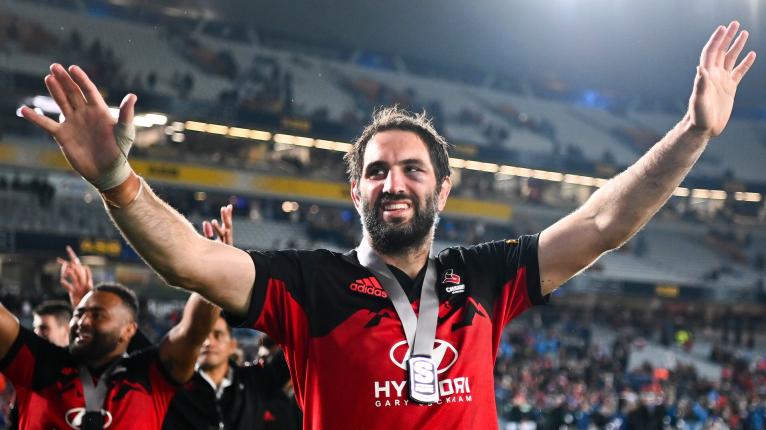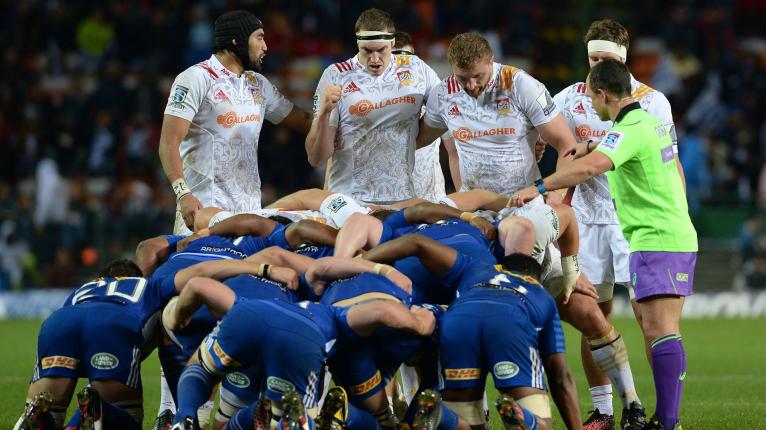After two years of getting messed up by Covid, Super Rugby Pacific emerged in 2022 and showed us that a Pacific-based pro rugby competition is viable, and if sanity prevails, will be the way forward.
The reshaped competition might not have been the revolution that was the original Super Rugby in 1996, but it delivered a good product, with the potential to grow.
New Zealand might have won the chocolates again, but Australia showed a significant improvement on last year’s dismal return in Super Rugby Trans-Tasman, and the Fijian Drua, in particular, brought an overdue injection of Pasifika flair, entertainment, and fan energy to the table.
It was great to have a more competitive trans-Tasman edge to the competition, and the variety that comes with playing teams with a different style and with their range of personalities. Results like the Waratahs beating the Crusaders, and the Brumbies beating the Chiefs lit a timely fire under the New Zealand teams.
The much-criticised extended playoff system actually turned out OK, helping to boost crowd numbers, there were two epic semi-finals, and while the Crusaders might have strangled the life out of the Blues in the final, the sight of 43,000 plus at Eden Park was one to gladden the heart.

There were some downsides.
The ‘Super Round’ in Melbourne was an enjoyable experience but was played in front of pitiful crowds. No matter how financially viable it was for the teams, it was not a good look for the game.
Covid took a toll, with a lot of early disruption that, in particular, taking the wind right out of Moana Pasifika’s entrance.
And of course, there was the refereeing. Always the refereeing. Finals week was dominated by an eruption of protest over the non-awarding of a potential match-winning penalty to the Brumbies, a very good team, but ironically one that had lived on the edge of the laws all season.
But moreover, hardly a week went by without a debate about red or yellow cards for high shots.
There’s far more upside than down, and it’s therefore disappointing that most of the talk following the final has been about Hamish McLennan. The Rugby Australia chairman has been slammed from multiple angles for his “all bets are off post-2024” comment and the threat of Australia going it alone.
The refs were certainly inconsistent, but blame must also lie with the players for not heeding the message, and for a judiciary that seemed intent on not applying the deterrent with meaningful force.
In doing so they blew any prospect of World Rugby picking up on the 20-minute red card, and probably any chance of Sanzaar being able to continue with an experiment designed to punish the individual more than the team or the paying fans.
The fans might also get more bang for their buck if NZR were to at least relax the strict playing time restrictions on their All Blacks, but there’s fat chance of that happening in World Cup year.
But for all that there’s far more upside than down, and it’s therefore disappointing that most of the talk following the final has been about Hamish McLennan. The Rugby Australia chairman has been slammed from multiple angles for his “all bets are off post-2024” comment and the threat of Australia going it alone.
McLennan has every right to explore all avenues available to the betterment of the game in Oz.

In past Australia benefitted greatly from an arrangement that saw South Africa’s massive TV pile, New Zealand’s lesser but still significant amount and Australia’s comparatively meagre contribution pooled and split amongst the three.
Nowadays it’s BYO, and if McLennan sees some room to lever a bit – at a time when there is much talk about how the two countries need each other – then you could possibly understand his intent, just not the way he’s gone about it.
It’s obvious there is lingering bitterness from two years ago when New Zealand made tactless noises about forming its own competition and inviting interest from a couple of Australian teams.
Even if it was done in a Covid environment, and with South Africa already well on their way to making good on their perennial threats to go into Europe, New Zealand’s conduct was still embarrassing.
But NZR has a new chair, an altogether more diplomatic hand on the wheel, and surely it’s time to move on, not pour petrol on the embers, as McLennan has done.
References keep being made towards the 41,000 that turned up to see the Brumbies-Reds Super Rugby AU final, but you’re not going to get anything like that on a week-in, week-out basis. We know from Super Rugby Aotearoa, the fans will tire quickly from watching a few teams play each other repeatedly
The timing of his comments, on the eve of the Super Rugby Pacific final, meant they were perceived as a petulant attempt to deflect attention from an all-New Zealand decider, and an unsubtle crack at squeezing some TV money out of New Zealand.
Making his case and waging war through the Sydney press is also not doing him any favours, although neither was it wise for Highlanders CEO Roger Clarke to get involved when NZR has clearly decided to stay out of the public debate.
It is hard to see how an Aussie-only competition could support the professional game in Australia. References keep being made towards the 41,000 that turned up to see the Brumbies-Reds Super Rugby AU final, but you’re not going to get anything like that on a week-in, week-out basis. We know from Super Rugby Aotearoa, the fans will tire quickly from watching a few teams play each other repeatedly
And besides, any franchise will tell you, while ticket money is good, it’s TV money that finances a competition like Super Rugby, and Australia’s TV deal, whilst with an excellent broadcast crew, simply isn’t as lucrative.
You only need to look at the financial state of Australian netball, who created a high quality, well-supported Aussie-only competition after booting New Zealand out, only to now be in a four-million-dollar hole.

There are predictions of a windfall, and great momentum from Australia hosting the 2027 Rugby World Cup and a British and Irish Lions tour soon after, but that happened early in the new millennium and the money disappeared very quickly. To start spending that money before it’s even in the bank could be catastrophic.
And what about where it matters most, on the field? It’s hardly a stretch to suggest that Australia’s dismal showing in Super Rugby Trans-Tasman last year might have had a bit to do with their lack of play against New Zealand in 2020. They were so much better this year that it can hardly be a coincidence.
And yes, New Zealand needs Australia too. Super Rugby Aotearoa was a massive hit early on, when we were thrilled to see anything being played, but it is too attritional to be healthy, and New Zealand fans were genuinely pleased to get back to some trans-Tasman competition.
While it seems few have particularly missed the South African teams, with their middle-of-the-night kick-off times, jacked-up home quarter-final advantages and referee conspiracies, they are a great rugby nation, and the lack of those high-impact games in challenging conditions can hardly have helped the All Blacks and Wallabies. Australia and New Zealand separating would only make things worse.
And where does it leave Moana Pasifika and the Fijian Drua, just one year into their existence and already hearing talk of the competition being dismantled? The two new teams brought much of what we hoped for, with two joyous matches in Fiji and the upset of the season in Moana’s win over the Brumbies.
The overriding fact is, like it or not, Australia and New Zealand need each other, and rugby needs a meaningful Pacific-based competition. It’s time to bang a few heads together, stop mouthing off in the press, get in a room, and start working together on a meaningful, mutually beneficial future.


Movement is demonstrated by walking. Excellent approach to this vital issue for the health of rugby in the southern hemisphere.
Nice to hear some common sense for a change